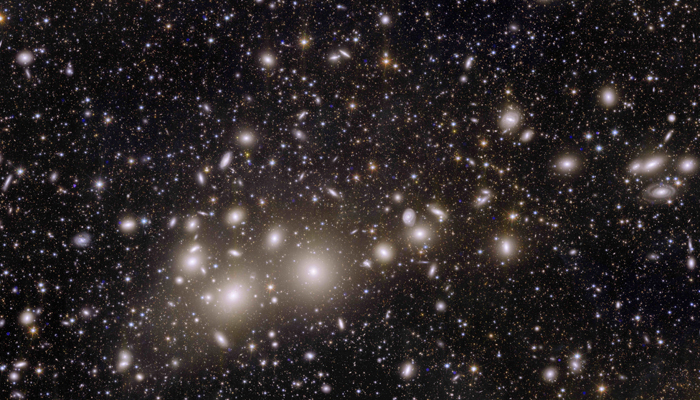Euclid snaps new distant galaxies in pursuit of dark matter
Euclid sends back stunning images of four never-seen-before galaxies
May 27, 2024

European Space Agency's (ESA) Euclid telescope, which was sent into space to solve the mysteries surrounding the dark matter, has sent a series of new images of galaxies lurking in the far corner of the cosmos.
The latest pictures offer great detail into the distant cosmos covered with vast objects in the night sky.
Dr Michelle Collins, who helped the team in spotting new galaxies was quoted by Express UK saying: "These stunning first images are just the tip of the iceberg. This telescope can reveal millions of new objects in a single day. We're only just beginning to realise its potential."
The pictures show two clusters of galaxies; Abell 2764 and Abell 2390. Euclid also captured a spiral galaxy NGC 6744, and a vibrant nursery of stellar material called Messier 78 Messier 78.
Messiers are at a distance of 1,300 light-years while Abell 2390 is far, at 2.7 billion lightyears.
Scientists expect that Euclid will eventually solve the mystery of Dark energy and dark matter since they were theorised.
Dark matter is an invisible material whose presence is known mainly based on its gravitational effects at a galactic scale.
Dark matter does not produce or directly interact with light but is thought to make up 85% of the universe, with the remaining 15% comprising normal matter.
Dark energy is a force discovered in 1998 and responsible for the universe’s expansion.
New pictures are four times sharper than those taken using ground-based telescopes.
Cumulatively, Euclid has identified over 11 million objects in visible light and another five million in infrared light. The mission started in July 2023. Dr Valeria Pettorino,









